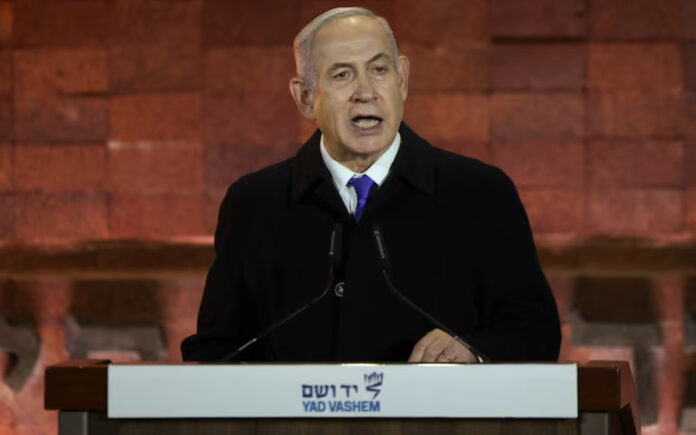Jerusalem: Prime Minister Benjamin Netanyahu finds himself at a crossroads, torn between domestic and international pressures as he navigates the delicate situation surrounding the operation to confront Hamas in Rafah, which further complicates efforts to secure the release of Israeli hostages.
Street protests against the government, led by families and supporters of the more than 130 hostages still held in Gaza, have become a common sight. These demonstrators demand a ceasefire with Hamas to facilitate the safe return of their loved ones.
Meanwhile, others advocate for the continuation of the Rafah operation to eradicate remaining Hamas forces in the city. This sentiment is echoed by groups like Mothers of IDF Soldiers, who believe that firm action is necessary to compel Hamas to surrender.
However, this stance underscores the divisions within Netanyahu’s cabinet, with centrist ministers wary of alienating Israel’s crucial ally, the United States, while nationalist hardliners are determined to eliminate Hamas from Gaza entirely.
Also Read | Poland’s PM Tusk Proposes Reviving Commission to Investigate Russian Influence Amid Espionage Concerns
Hamas presented Netanyahu with a quandary by accepting a ceasefire proposal brokered by Egypt, which offered to halt hostilities in exchange for a prisoner exchange. Despite rejecting the offer, Israeli officials continue negotiations, with CIA chief Bill Burns meeting Netanyahu in Israel to discuss the situation.
Internationally, Israel’s campaign in Gaza has sparked widespread protests, drawing attention to the humanitarian crisis in the region. Despite these challenges, Netanyahu faces growing pressure at home to prioritize the safe return of hostages over military objectives.
Surveys reveal a divided opinion among Israelis, with some prioritizing Netanyahu’s political survival while others emphasize the urgency of rescuing the hostages. This divergence of views reflects the complex nature of the crisis and the public’s mistrust of Netanyahu’s handling of security matters.
Also Read | Pakistan’s Economic Strategy: Banking on Cannabis Legalization
For now, Netanyahu maintains unity within his cabinet, rejecting the latest ceasefire proposal while keeping negotiations alive through diplomatic channels. However, Washington’s decision to delay a weapons shipment underscores the risks associated with prolonging the standoff.
As the hostage crisis continues, families express frustration and exhaustion, longing for the safe return of their loved ones. Despite differing opinions on how to address the situation, their unwavering hope serves as a reminder of the human toll of conflict.



